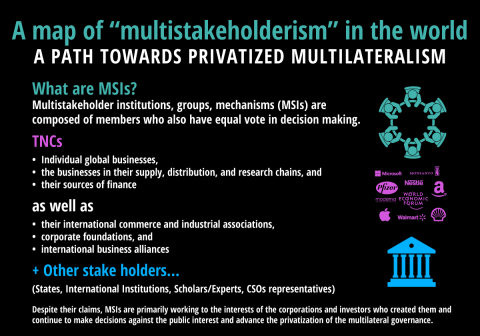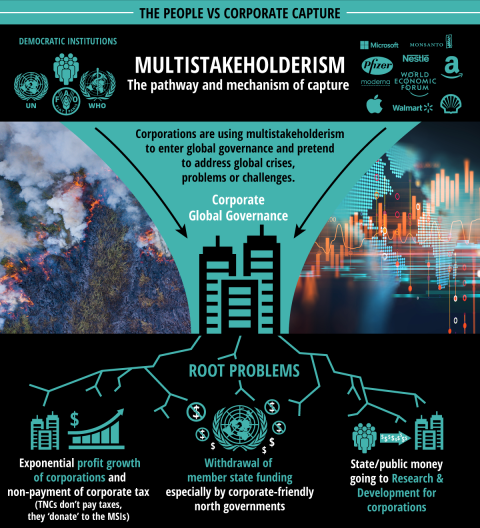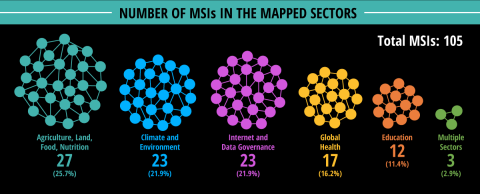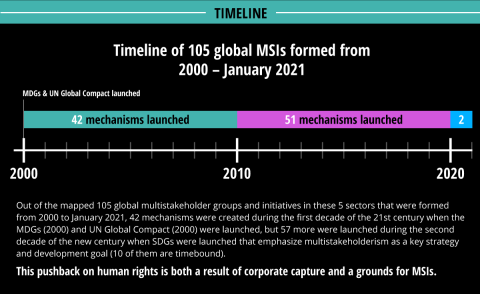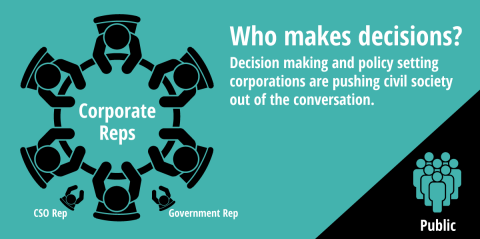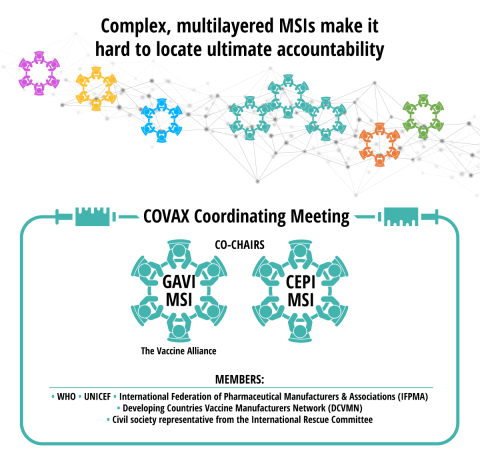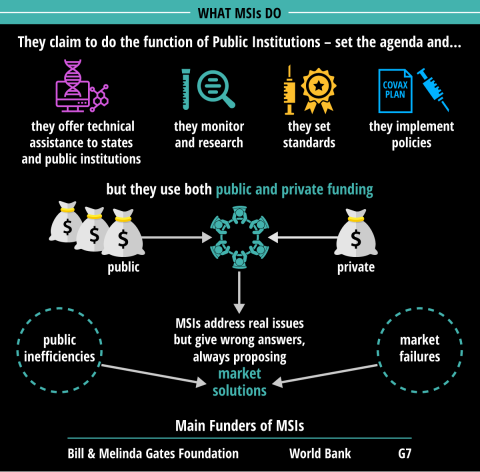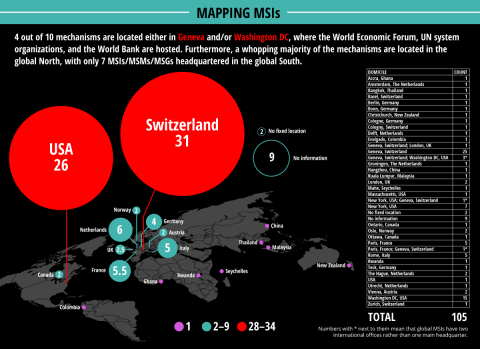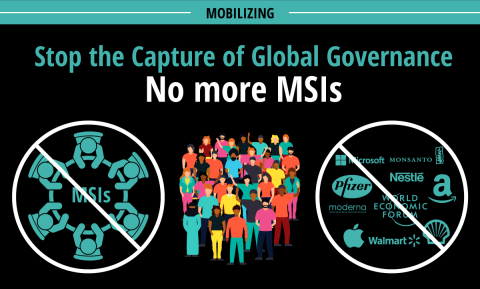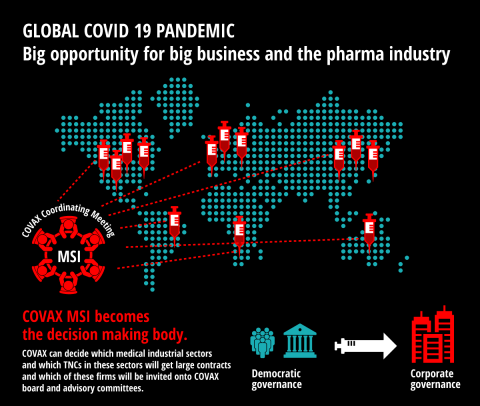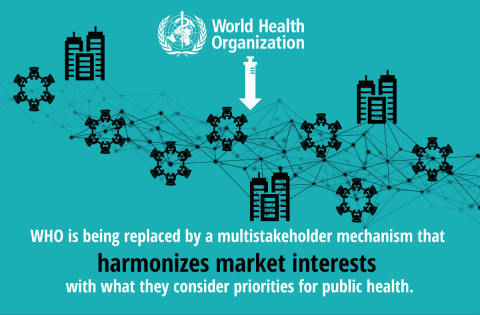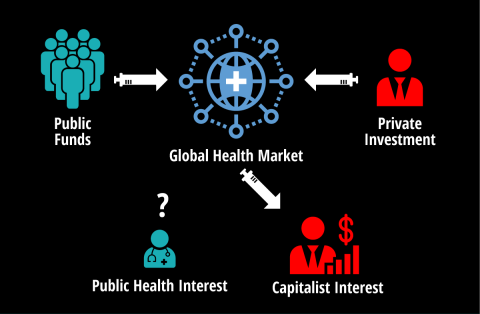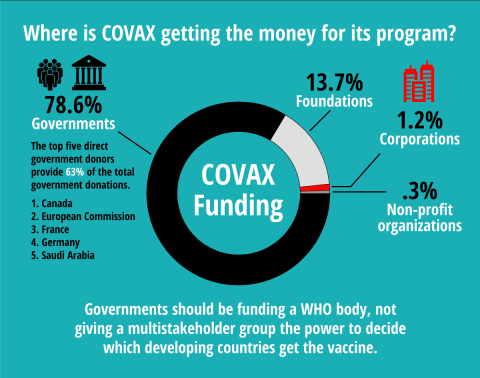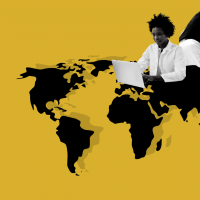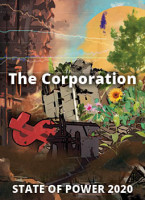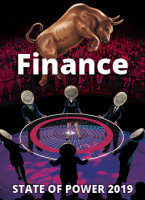The corporate capture of global governance and what we are doing about it Stop the capture of global governance
Temas
In the wake of the COVID-19 pandemic, transnational corporations are seeking to cement their control of global governance, ensuring it serves the interests of business and profits rather than the wellbeing of humanity. We have collected here key resources for everyone interested in learning more about the crisis of global governance, the transnational corporations' false solutions, and the possibilities for new forms of global democratic governance.
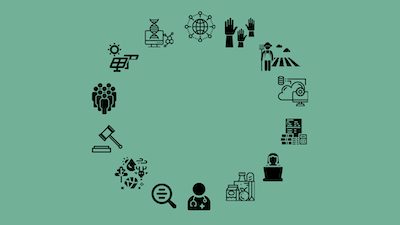
Table of contents
In the wake of the COVID-19 pandemic, transnational corporations are seeking to cement their control of global governance, ensuring it serves the interests of business and profits rather than the well-being of humanity.
Transnational corporations are directly responsibile for many of the global crises we face. The solutions will only come from building a strong public, democratic and efficient multilateral system. It is urgent to expose the global and systemic trend towards corporate capture in various forums and uniting real democratic opposition.
A growing multisectoral coalition of social movements and international civil society networks are working together to analyze and unmask the global and systemic trend towards corporate capture, by showing how it operates in key sensitive areas, as well as taking the challenge to publicly denounce corporate interference in global governance and the evolution of a parallel “privatized multilateralism” made up of a myriad of “multistakeholer” bodies.
The World Economic Forum has developed and pushed for the privatization of global governance for decades. The 'Great Reset' is just the latest iteration of the gradual corporate takeover of global institutions, such as the UN and other international bodies, that take critical decisions over the governance of global common goods like food, water, health, internet and others.
We particularly encourage oragnisations to add their signatures, though signatures from individuals are also welcome. We plan to work on the demands of the letter in the run-up to the World Economic Forum (WEF) to be held in Singapore in May, 2021. For further information, please contact: bridbrennan[at]tni.org.
Puedes encontrar la versión en español aquí.
Read this open letter (in English, Spanish or French) addressed to the Secretary General of the United Nations, to withdraw the proposal to set up a High Level Multistakeholder Body for global digital governance -- a body which will evidently be dominated by Big Tech.
You can your signature as individual or organisation.
These three presentations are for civil society groups, activists, social movements and others that are eager to learn more about the corporate capture of global governance and what they can do about it. Each presentation explores the issue from a different angle. You can use these as discussion points with your peers or colleagues. Each presentation takes approximately 20 minutes to work through.1
1. Where we are now with the global governance of TNCS (full screen)
2. What is wrong with the emerging multistakeholderism (full screen)
3. Global governance without TNCs: a conversation starter (full screen)
Infographics: Mapping Multistakeholderism
Click images to enlarge
Under the context of the COVID19 pandemic, with COVAX the World Health Organisation is being replaced by a multistakeholderism mechanism that harmonizes market interests with what they consider priorities for public health. COVAX can decide which medical industrial sectors and which Transnational Corporations in these sectors will get large contracts and which of these firms will be invited onto COVAX board and advisory committees.
Click images to enlarge
These pieces by IT for Change probe into the ways in which multistakeholderism and techno-solutionism are forwarded as ideal responses to the problem statement of governance of the digital, and examine the underlying corporate capture currently underway by the ‘Davos Class’.
This Webinar addresses the ongoing take over of corporate capture and privatization of global governance. From a multi-sectoral perspective, key movements and sectors (Health, Food, Education, Environment, High Tech) will share their struggles, strategies and common challenges.
The Webinar is presented in a dynamic and participatory format, an Open Forum fields the questions and comments from the floor. The Webinar concludes with an Invitation to join the process of mobilization and Political Action during 2021.
Panelists:
- Harris Gleckman, Senior Fellow, Center for Governance and Sustainability, UMass-Boston; formerly UN Center on TNCs (USA)
- Mary Ann Manahan, Beyond Development Global Working Group/Ghent University, (Belgium & Philippines)
- Saul Vicente, International Indian Treaty Council -IITC (Mexico)
- Leticia Paranhos Menna de Oliveira, FOEI (Brasil)
- Vernor Munoz, Global Education Campaign (Costa Rica)
- Sun Kim, Peoples Health Movement (South Korea)
- Parminder Jeet Singh, IT for Change (India)
- Baba Aye, PSI & G2H2 Co-President (Nigeria)
*Mary Ann Manahan's presentation is available here for download.
1Note to activists (download here)
The audience for this educational packet are those activists who have focused part of their work on one UN organization and could benefit from understanding the governance context that surrounds that organization. One element of change in the global political dynamic is the introduction of multistakeholderism as a candidate structure for global governance. This mechanism allows TNCs to be direct participants in global governance and acts to co-opt multilateralism and civil society. At the same time there is a an evolving interest in a number of activist community to develop a more equitable and a more effective system of global governance, one that can amongst other things address multidimensional and systemic crises.
In order to make this packet more effective, it was been designed to allow the addition of supplemental slides with context specific to individual sectors. In Part One, for example, there are blank slides available for insertion in the history section and the section on MSism challenges to multilateralism (see slides 3 and 4 below). In Part Two, there are prototype slides available to explain in more detail the history of MSism in a specific sector and another blank slide for describing MS groups specific to a sector (see slides 5 and 6 below) . In Part Three, there are blank prototype slides each of the five sections that can used to identify new options for governing in specific sectors (see slides 7 to 11 below).
-
Presentation: 1. Where we are now with the global governance of TNCS (PDF, 872.76 KB)Tiempo medio de lectura: 20 minutes minutos*
-
Presentation: 2. Where we are now with the emergence of multistakeholderism (PDF, 827.44 KB)Tiempo medio de lectura: 20 minutes minutos*
-
Presentation: 3. Global governance without TNCs: a conversation starter (PDF, 999.67 KB)Tiempo medio de lectura: 20 minutes minutos*
